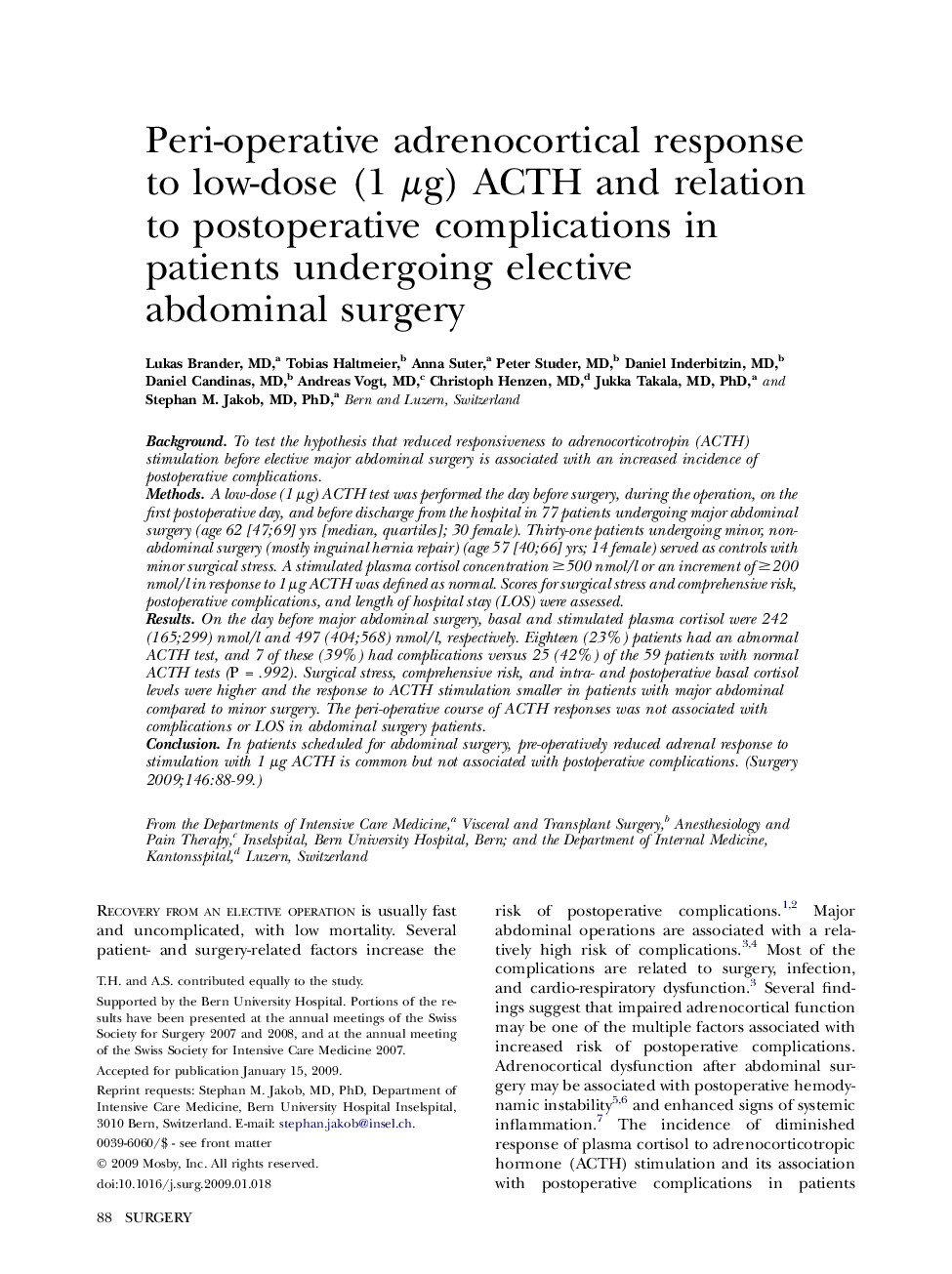| Article ID | Journal | Published Year | Pages | File Type |
|---|---|---|---|---|
| 4309548 | Surgery | 2009 | 12 Pages |
BackgroundTo test the hypothesis that reduced responsiveness to adrenocorticotropin (ACTH) stimulation before elective major abdominal surgery is associated with an increased incidence of postoperative complications.MethodsA low-dose (1 μg) ACTH test was performed the day before surgery, during the operation, on the first postoperative day, and before discharge from the hospital in 77 patients undergoing major abdominal surgery (age 62 [47;69] yrs [median, quartiles]; 30 female). Thirty-one patients undergoing minor, non-abdominal surgery (mostly inguinal hernia repair) (age 57 [40;66] yrs; 14 female) served as controls with minor surgical stress. A stimulated plasma cortisol concentration ≥500 nmol/l or an increment of ≥200 nmol/l in response to 1 μg ACTH was defined as normal. Scores for surgical stress and comprehensive risk, postoperative complications, and length of hospital stay (LOS) were assessed.ResultsOn the day before major abdominal surgery, basal and stimulated plasma cortisol were 242 (165;299) nmol/l and 497 (404;568) nmol/l, respectively. Eighteen (23%) patients had an abnormal ACTH test, and 7 of these (39%) had complications versus 25 (42%) of the 59 patients with normal ACTH tests (P = .992). Surgical stress, comprehensive risk, and intra- and postoperative basal cortisol levels were higher and the response to ACTH stimulation smaller in patients with major abdominal compared to minor surgery. The peri-operative course of ACTH responses was not associated with complications or LOS in abdominal surgery patients.ConclusionIn patients scheduled for abdominal surgery, pre-operatively reduced adrenal response to stimulation with 1 μg ACTH is common but not associated with postoperative complications.
